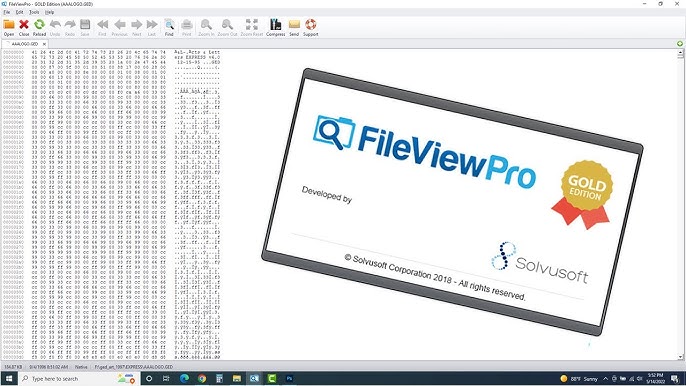 FileViewPro is a comprehensive, user-friendly software designed to open, view, and manage a wide range of file formats. One of its key features is its ability to handle ALS files. ALS files are project files created by Ableton Live, a popular digital audio workstation (DAW) used by musicians, producers, and audio engineers for music production, live performances, and sound design. These files contain detailed information about a music project, including audio tracks, MIDI data, effects, instrument settings, automation, and project arrangements.
FileViewPro is a comprehensive, user-friendly software designed to open, view, and manage a wide range of file formats. One of its key features is its ability to handle ALS files. ALS files are project files created by Ableton Live, a popular digital audio workstation (DAW) used by musicians, producers, and audio engineers for music production, live performances, and sound design. These files contain detailed information about a music project, including audio tracks, MIDI data, effects, instrument settings, automation, and project arrangements.However, ALS files are proprietary to Ableton Live, which means users often face difficulties accessing or previewing their contents without having Ableton installed. FileViewPro solves this issue by enabling users to open and inspect ALS files without needing specialized music production software. ALS files play a crucial role in modern music production workflows. They store all the elements of a project in an organized structure, allowing producers to save and revisit their work at any time.
These files capture every detail of a music session, from the arrangement of clips to complex automation and effects chains. However, for collaborators, clients, or other stakeholders who do not have Ableton Live, accessing these project files can be challenging. FileViewPro bridges this gap by providing a solution that allows users to open ALS files and view their content, making it easier to share and collaborate on projects.
With FileViewPro, users can explore the structure of an ALS file, including its audio and MIDI tracks, clip arrangements, and automation data. The software presents this information in an intuitive interface, allowing users to navigate through the different elements of the project. This is particularly helpful for producers who need how to open ALS review project details, such as instrument settings or effect chains, without launching Ableton Live.
Users can inspect each track’s configuration, including volume levels, panning, and applied effects, giving them a clear understanding of the project’s layout and sound design. In addition to viewing project details, FileViewPro provides a range of tools to manage ALS files effectively. For example, users can extract individual audio files, MIDI clips, or effect settings from the project and save them separately. This feature is invaluable for musicians and producers who want to reuse or share specific elements of a project without sending the entire ALS file.
By offering this level of flexibility, FileViewPro streamlines the process of sharing creative assets and improves collaboration between team members who may be working with different DAWs. Another standout feature of FileViewPro is its ability to convert ALS files to more accessible formats. While ALS files are essential for maintaining all the data of an Ableton project, they are not compatible with other DAWs like FL Studio, Logic Pro, or Pro Tools.
FileViewPro allows users to export key components of an ALS file, such as audio stems and MIDI sequences, into formats that other software can read. This makes it easier to collaborate with artists and producers who use different production tools, ensuring that creative workflows remain seamless and efficient. FileViewPro also supports metadata extraction for ALS files, providing users with valuable information about the project.
Metadata can include details such as the project’s creation date, last modification date, and author information.
